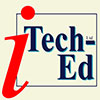 |
 |
 |
||

Monday, 9 July 2012
Higgs boson exists
This week saw scientists at CERN pretty much claim to have found a new subatomic particle – the boson predicted half a century ago by theoretical physicist Peter Higgs. The discovery allows physics to work because particles can now have mass. But, of course, it opens the door to lots of other questions such as why is there more matter than anti-matter in the universe.
So, in a week when scientists and non-scientists have been talking about bosons and fermions, and quarks and leptons, IBM has been pushing the envelope with an Augmented Reality (AR) app for shoppers owning a smartphone! The app, they claim, can automatically deliver personalized coupons, offers, customer reviews, and hidden product details to the potential customer.
The app doesn’t rely on barcodes or RFID tags to recognize products, but it does need a camera. The app compares a captured image with those in its database. If the product packaging matches the image-processing algorithm, it will automatically overlay digital details of the product on the image.
These details could include nutritional information, price, reviews, and discounts. And, you can opt into a social networking feature that delivers comments or reviews from friends and family about that product.
While a shopping AR app may, in many ways, seem trivial, it is opening the door for a whole new world of living. AR could be as revolutionary as the Internet. Think about it – you visit a new city, say Paris, for the first time, and on your phone screen comes information about every building and statue that the guide books know about. Or, perhaps, your car won’t start, so you point your camera at the engine and it identifies where the oil should go, or the brake fluid, etc. Not that I’d trust these ones, but an inexperienced surgeon operating on a patient could see AR information, or someone who’d never flown a plane before but needs to land it successfully (come on, you’ve seen it often enough in the movies and on TV).
Other news this week is that Dell is continuing to reposition itself with its $2.4 billion bid for Quest Software. With the growth in sales of tablet devices and the drop in sales of desktop and laptop PCs, as well as the growth in cloud computing, Dell is moving away from being just the hardware supplier that we’ve known for so long.
Quest is probably best known for its TOAD product, which is used to build, manage, and maintain databases. But Quest also has a range of other products including Shareplex, Lightspeed, Netvault, and Foglight. Dell apparently plans to make Quest, which has 1,300 software developers, the core of its software group, which it expects to grow into a $2 billion-a-year business over the next three years.
Dell’s other recent acquisitions include Wyse Technology, Make Technologies, Clerity Solutions, AppAssure, SonicWALL, and Force10 Networks.
And finally, why not become part of the IBM System z poster? Go to http://part-of-z.de/, complete the form and upload your photo. You then have a chance of being one of the 150 faces that will appear on the poster. But if you’re not on
